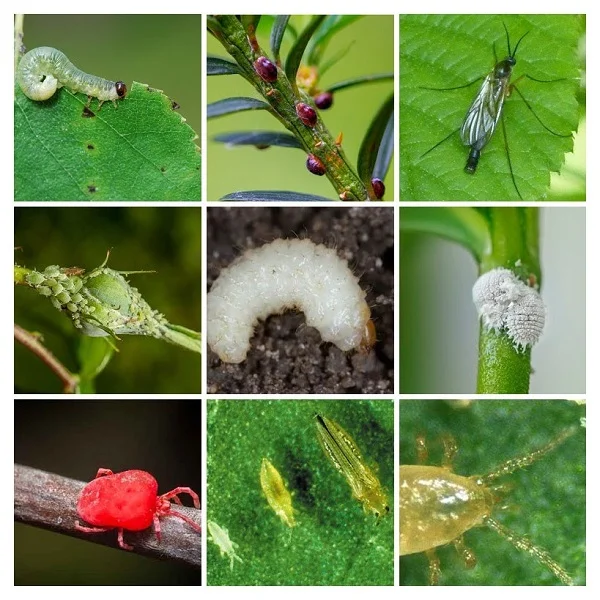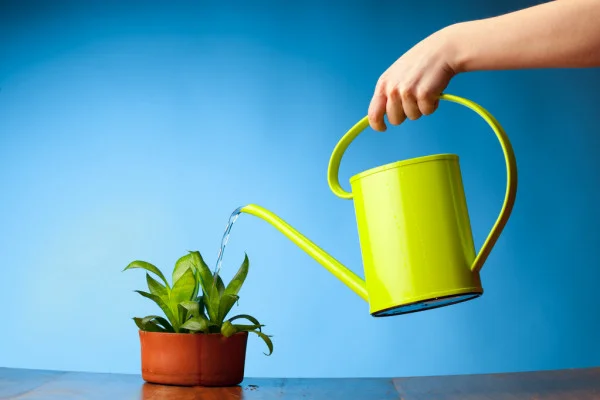12 Houseplants Diseases, their Identification, Causes, Prevention and Treatment
Some links in this post may be affiliate links
Houseplants may get attacked by diseases. Usually, the appearance of a disease is a sign of poor growing conditions and or cultural practices. It is important to control any plant disease immediately it is spotted.
Any delay in the control of a houseplant disease may result in spread to the other indoor plants and may then become uncontrollable leading to loss of your plants.
The key is to regularly inspect your houseplants for any signs of disease, treat any disease immediately and correct the cultural fault leading to the problem.
12 Common Houseplants Diseases Identification, Causes, Prevention and Treatment
The most common diseases in houseplants are powdery mildew, root-rot, leaf rust, leaf spot, crown and stem rot, sooty mold, oedema, damping off among others.
1. Powdery mildew
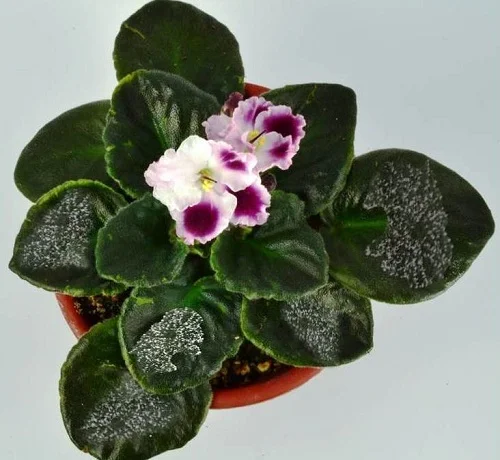
Powdery mildew is a fungal disease characterized by spotting or coating of the leaf surface with a white powdery deposit.
This leads to disfigured leaves and it can spread to the stems and flowers. Read more on powdery mildew and how to control it.
2. Root-rot disease
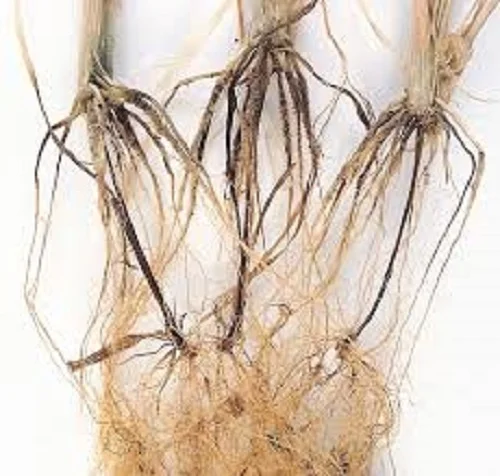
The first sign of root-rot disease is yellowing and wilting of the leaves which is rapidly followed by browning and houseplant collapse.
The cause is fungal decay due to waterlogging of the soil. Read more on root-rot disease and how to treat it.
3. Crown and stem rot disease
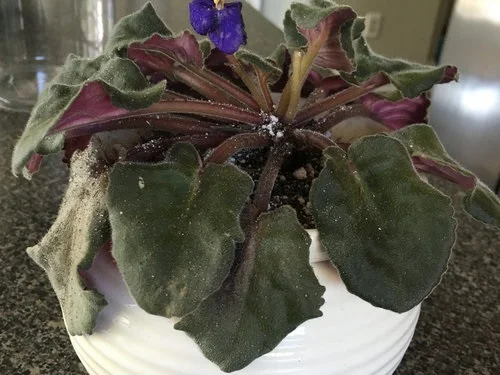
With crown and stem rot disease, part of the stem or crown turns soft and rotten.
If the diseased are is at the base of the plant, it is called Basal rot. Read more on crown and stem rot disease and how to control it.
4. Leaf rust disease
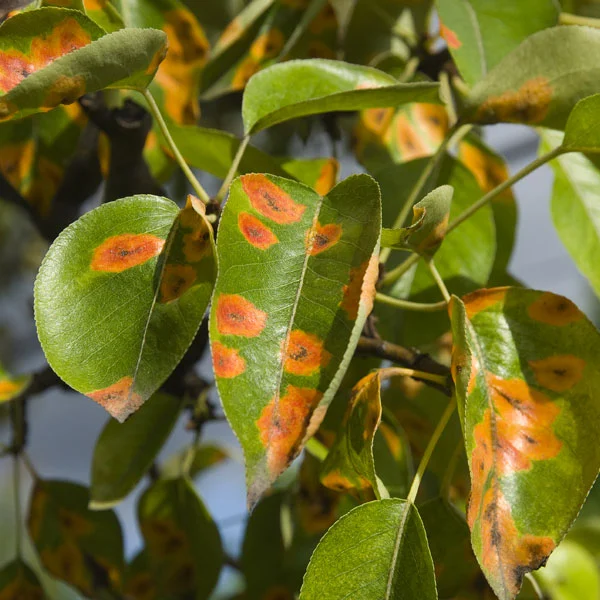
Leaf rust disease is characterized by brown concentric rings of spores on the underside of the leaves.
Leaf rust diseases are caused by a group of fungi. These fungi are parasites, which means they can only grow on a living host. Read more on leaf rust disease and its treatment.
5. Leaf spot disease
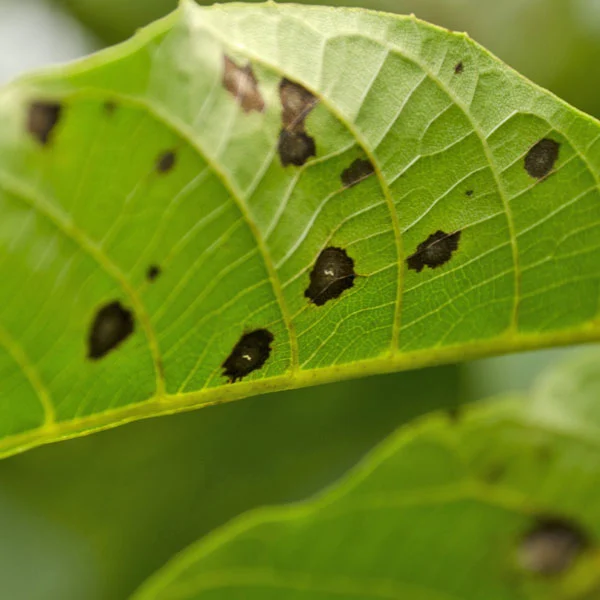
Leaf spot disease is characterized by brown, moist spots on the foliage.
In a serious attack the spots enlarge and merge, killing the whole leaf. Read more on leaf spot disease and how to treat it.
6. Anthracnose disease
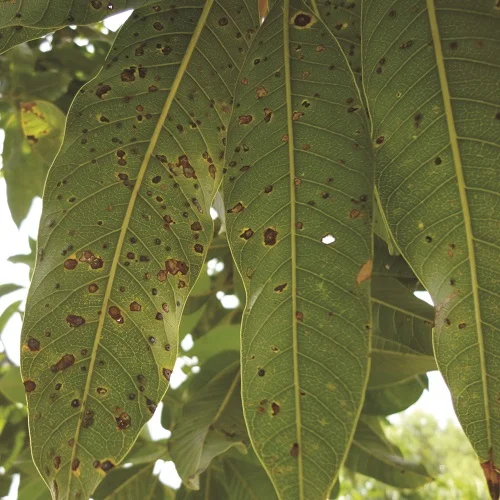
Anthracnose disease is characterised by sunken black spots on the foliage. Dark brown streaks may occur at the leaf tips.
The disease is associated with warm and very moist conditions. Read more on anthracnose disease and its control.
7. Black leg disease
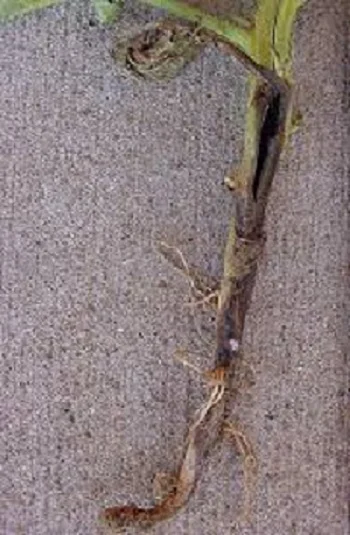
Black leg disease is a disease of stem cuttings where the base of the cutting turns black.
The cause of the disease is bacteria and the predisposing factors are waterlogging and overcompaction of the soil. Read more on black leg disease and how to control it.
8. Botrytis disease
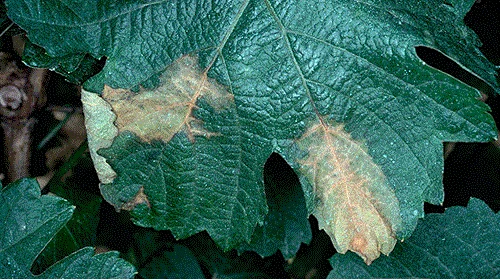
Botrytis disease also called Black Mold is characterized by grey, fluffy mold which can cover all parts of the houseplant.
The disease can infest the leaves, stems, buds and flowers if the growing conditions are cool, humid and still (no air circulation). Read more on botrytis disease and how to treat it.
9. Damping off disease
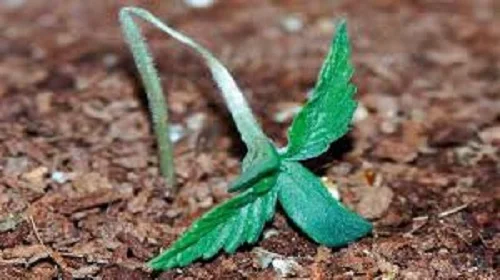
Damping off Disease is a fungal disease which attacks the root and stem bases of seedlings.
It causes shrinkage and rot at the ground level resulting in the seedlings toppling over. Learn more on damping off disease and how to control it.
10. Oedema disease
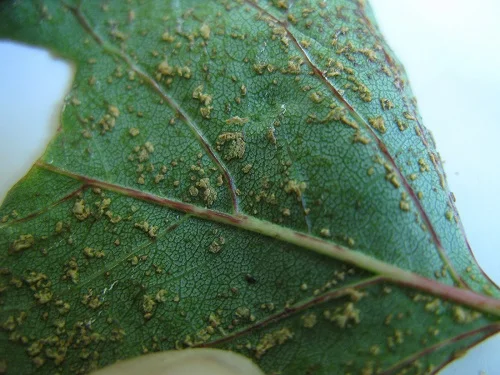
Oedema also called Corky scab is characterized by hard corky growths on the underside of leaves; this is the houseplants response to waterlogged soil coupled with low light intensity.
The plant will rapidly absorb water from the soil but since the light available is little, most of the water cannot be used up as quickly which results in the cells bursting. Read more on oedema disease and its control.
11. Sooty mold
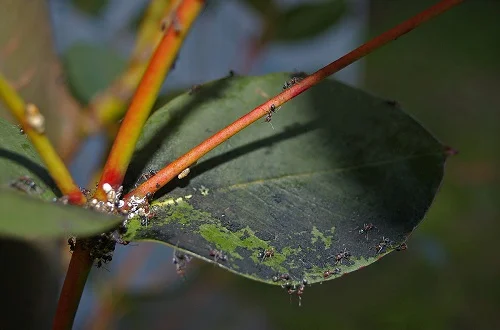
Sooty mold is a black mold which grows on the sticky honeydew deposited by aphids, scales, mealy bugs and whiteflies.
The sooty mold reduces plant growth and vigour. Learn more on sooty mold and how to treat it.
12. Viral diseases
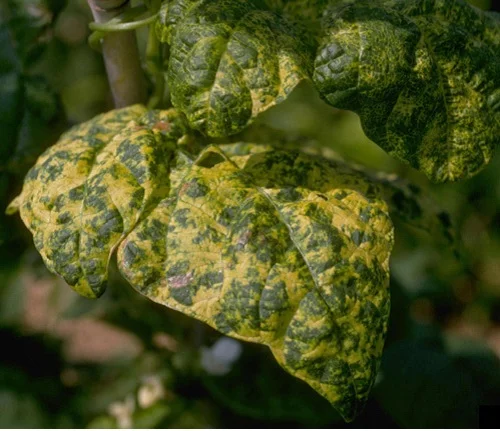
The indication of viral infections in houseplants are many and varied.
They include; stunted growth, distorted stems, pale green or yellow spots or small patches on leaves, large white streaks on colored flowers. Read more on viral diseases and how to control them.
You liked it? Share on social media.
Related Content
Amazon Associates Disclosure
Homeplantsguide.com is a participant in the Amazon Services LLC Associates Program, an affiliate advertising program designed to provide a means for sites to earn advertising fees by advertising and linking to amazon.com.
